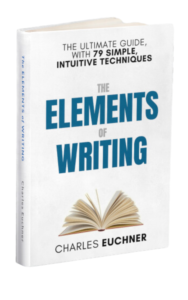Take a look at my review of Walter Isaacson’s new book The Innovators here.
While working on the review, I kept thinking about how the lessons of innovation apply to thinking and writing. Some quick thoughts:
1. The Combining Process: “What is imagination?” Ada Lovelace, one of the early visionaries of computing, asked in 1841. “It is the Combining faculty. It brings together things, facts, conceptions in new, original, endless, ever-varying combinations.” Same for writers. In a sense, all we do is gather and recombine ideas and expressions into new packages.
2. Begging, Borrowing and Stealing: “Xerox PARC researchers developed the mouse and visual displays that made the modern computer possible; stuck in a lab mindset, they let Steve Jobs steal them. When Google’s Sergy Brin and Larry Page offered to sell their secret search recipe for $1 million, Yahoo and others yawned and said no.” What kinds of great ideas can you appropriate from other thinkers? How can you make your writing the “best of” other people’s work in your field?
3. Thinking in Metaphors: “Breakthrough thinkers see the world metaphorically. Einstein famously got his “aha” moment for relativity theory while pondering the sight of two trains, traveling in opposite directions, passing a platform. Computer innovators used the metaphors of fabric looms, phone switchboards, race relays, assembly lines, railroad punchcards, painting brushstrokes, market baskets, and spider webs to visualize the operations of ever more sophisticated computers.” What metaphors help you express ideas better to your audience?
4. The Importance of Ego: “Innovators bring big egos to develop visions bigger than themselves. Contrary to the myth of the lone inventor, innovation requires teamwork.” To write, you must believe that you have something important to tell someone. That’s ego. With a healthy ego, you can perform some terrific work for your readers. So don’t be so modest that you diminish your subject.
5. The Importance of Collaboration: To express your big thoughts, you often need help. Journalists rely on expert sources and street-level folks to give their ideas gravitas. Those sources are, in a sense, their collaborators. Academics rely on the literature of their fields. In either case, the best writers find ways to let other people express their ideas. Sometimes, expressing many voices makes it easier for you to offer your own contributions.

